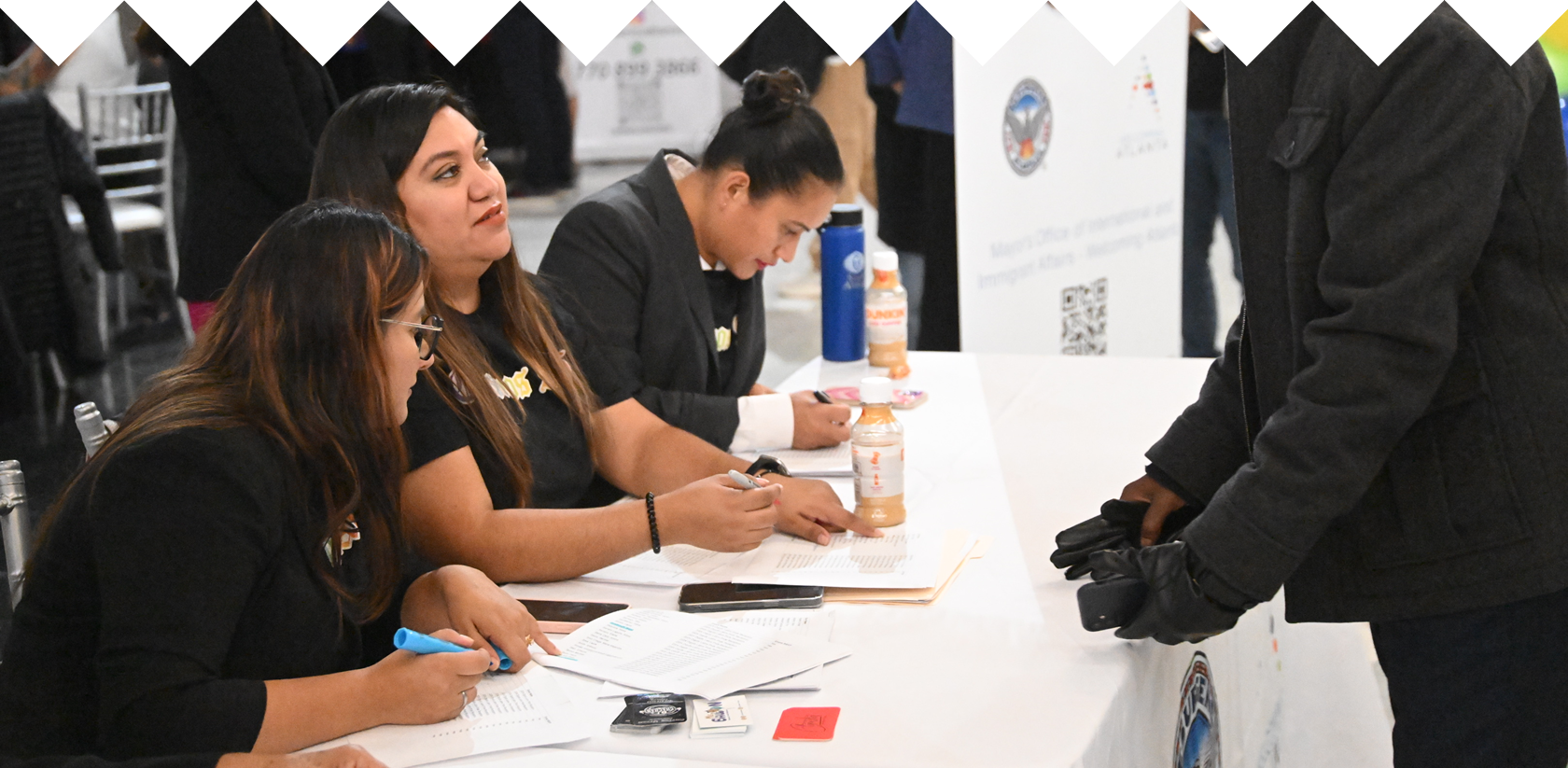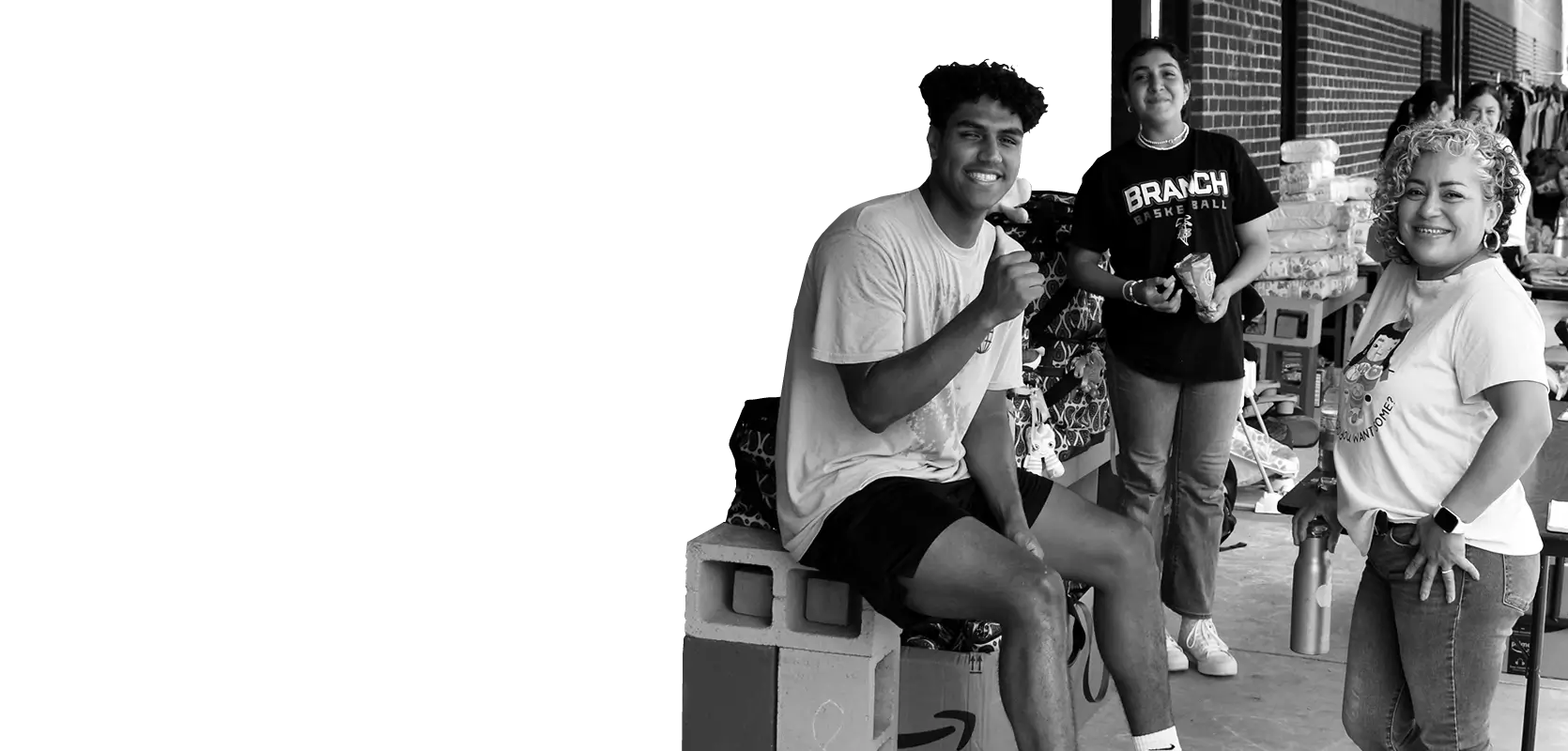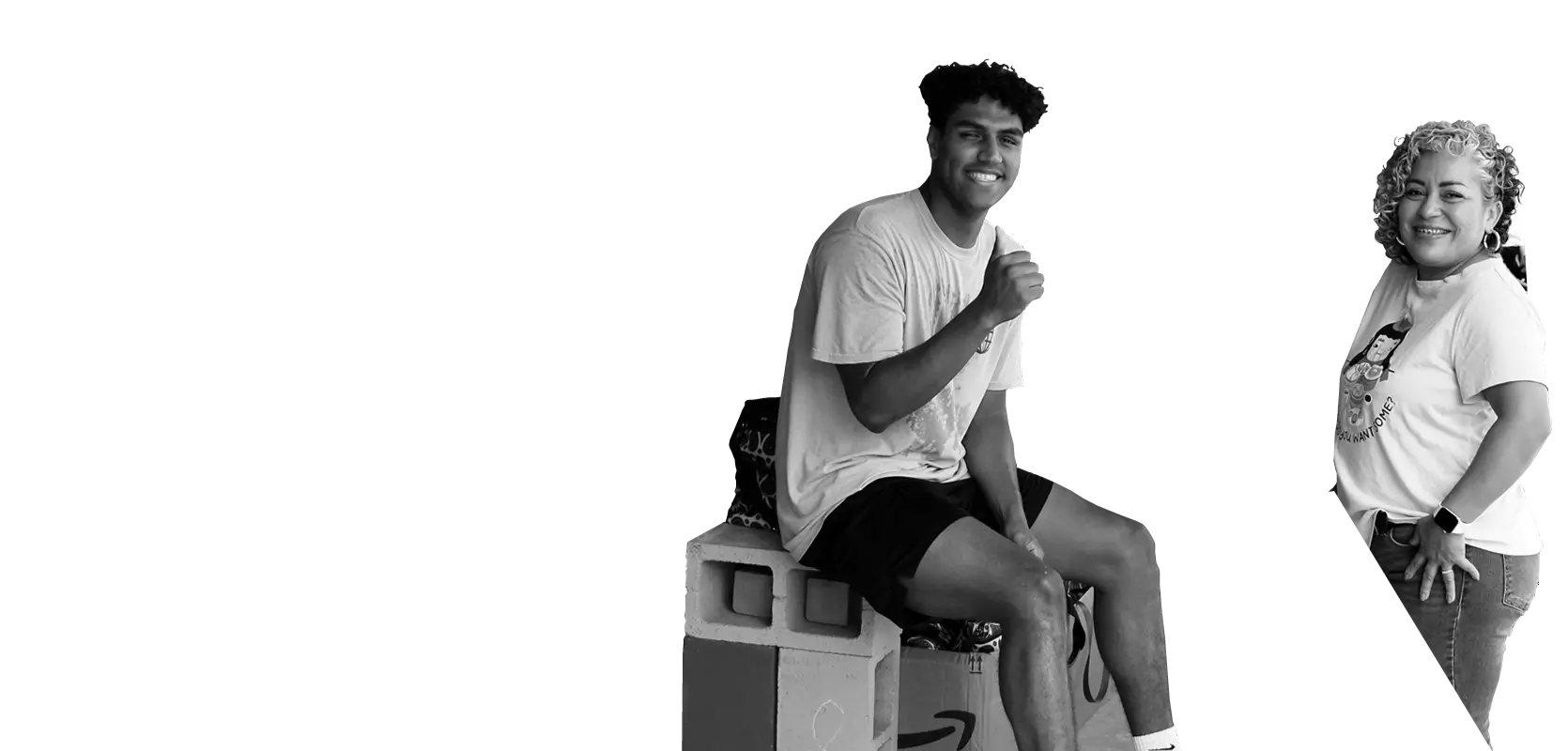Despite these challenges, the community has continued to move forward with minimal leadership, funding, or support from mainstream philanthropic institutions, political parties, candidates, and national leaders or organizations.
The history of the Latino political power in Georgia is deeply connected to three basic needs: economic opportunity, physical safety, and protection from deportation.
Still, there’s a rising interest in getting involved in the democratic process across the board. People are exploring different ways to engage, from volunteering and making donations to running for office, creating mutual aid networks, and showing up at the polls.
Participation in Elections
Between 2016 and 2020, the self-identified Latino electorate in Georgia grew by 57.5%, adding about 95 thousand new voters for a total of more than 260 thousand. According to the Secretary of State’s records, that represented 4% of the state’s total voters42. The share of Hispanic or Latino voters has increased since.
An alternative methodology from the NALEO Education Fund, which uses surname matching, estimates Georgia’s Latino voting power to be higher, with an additional 100,000 voters of Latin American descent who are not identified as ‘Hispanic’ on the official voter rolls due to technical limitations and inconsistent self-identification43.
Since becoming the political center of the 2020 presidential election, Georgia has attracted numerous new organizations and groups looking to tap into this emerging opportunity, making the state a focal point in national politics.
The number of eligible and registered Latino voters in Georgia has grown significantly and is expected to keep rising as more U.S.-born Latinos turn 18 yearly42.
The Latino voter turnout for the 2024 Presidential Election is estimated at 60%, which is 179,481 voters45. Latinos are also estimated to have been the fastest-growing group of new voters in Georgia, with 38.7% of Hispanic early voters in the 2024 presidential election who didn't vote in 202044.
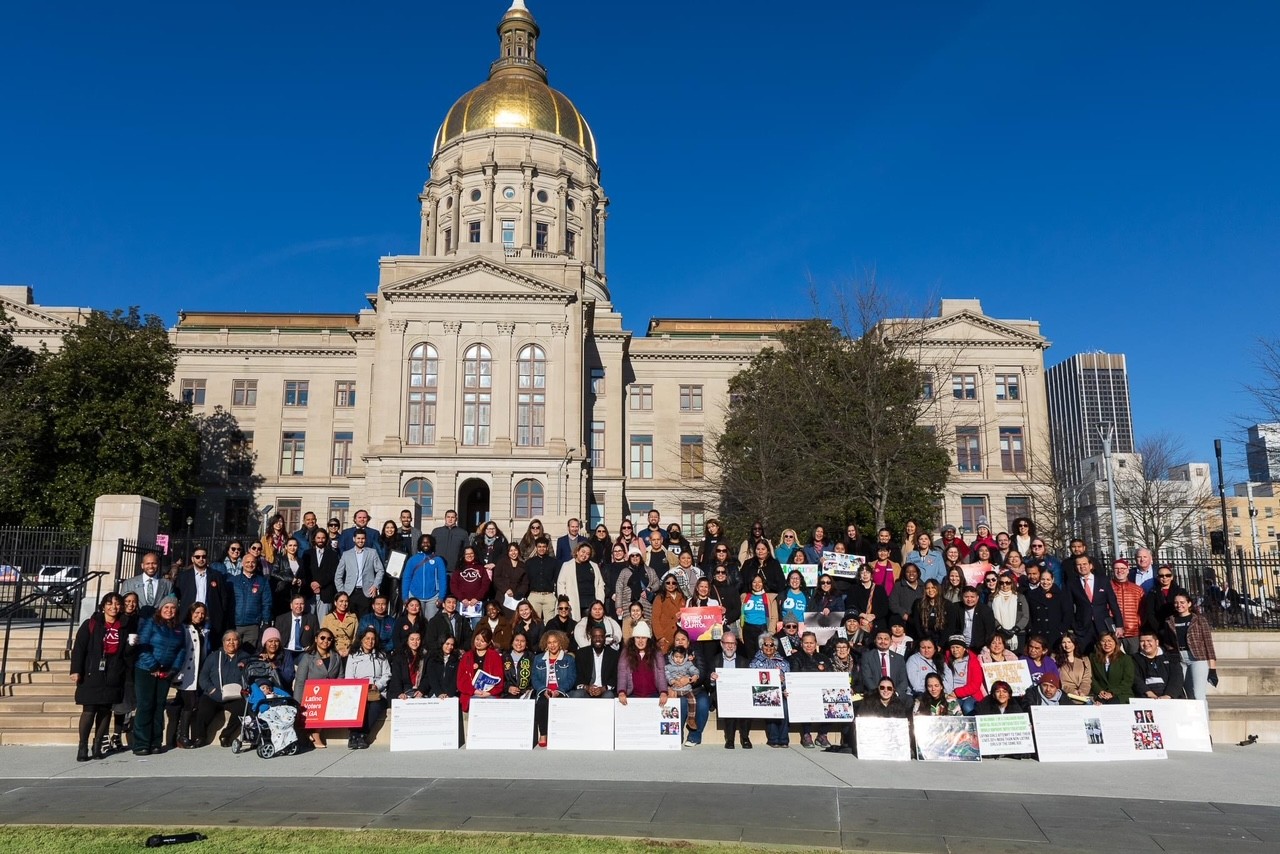
For many, this was their first election. This year, almost 22% of the almost 180 thousand Latino voters in Georgia were between 18 and 24 years old45.
However, the diversity of documentation status in Georgia makes voter registration for Latinos one of the most expensive and complex tasks for community organizations. Non-citizens who are eligible and seek to naturalize face strict and lengthy immigration processes, must learn English, pass a civics test, undergo health exams, and pay over $700 in fees.
Representation Matters
The combination of a lack of institutional support, barriers to voting representation, and limited community wealth means Georgia Latinos are significantly underrepresented in government and policymaking positions, both elected and appointed. This is especially evident in counties where Latinos are the plurality of their residents yet lack formal leadership roles.
Gwinnett, one of the most diverse counties in the Southeast, illustrates this issue well. Although language access is mandated by law due to the large population of Spanish-speaking citizens, local political decisions and campaigns are primarily conducted exclusively in English. This language barrier limits the participation of non-English speaking residents in local decision-making processes.
To effectively engage Latinos in the electoral process, it's crucial to have representatives who reflect our communities. Many are frustrated by mainstream political discourse that overlooks or misinterprets our realities, assuming that Latinos from states like New York, California, Texas, or Florida experience life the same way as Georgians; or that even all Georgia Latinos have the same shared experiences, priorities, and values.
What Latinos Want
Latino voters in Georgia are increasingly viewed as a persuadable block for political parties, and with close to 30% of the Latino population registered to vote46, each ballot carries significant weight in representation. Many voters participate for those who cannot make their voices heard at the polls. However, we are an incredibly diverse community with various countries of origin and unique experiences. This diversity can complicate efforts to create a unified Latino voice, as differing academic and economic backgrounds often lead to varied perspectives and priorities.
A majority of Latino voters act with a sense of community, supporting the needs of those unable to vote.
Jerry Gonzalez, CEO of GALEO
In general, naturalized citizens tend to be more likely to participate in elections than native-born Latinos, often due to the effort involved in becoming naturalized and the motivations to migrate to the US in the first place. Following the 2016 election, there was a noticeable increase in Latinos seeking naturalization in response to anti-immigrant rhetoric.
Luis Zaldivar, Georgia’s director of CASA, points out that immigration is a significant issue in Georgia and has a huge class undertone. The challenges the immigrant community faces—such as access to jobs, housing, and the cost of living—are also relevant to many working-class Americans.
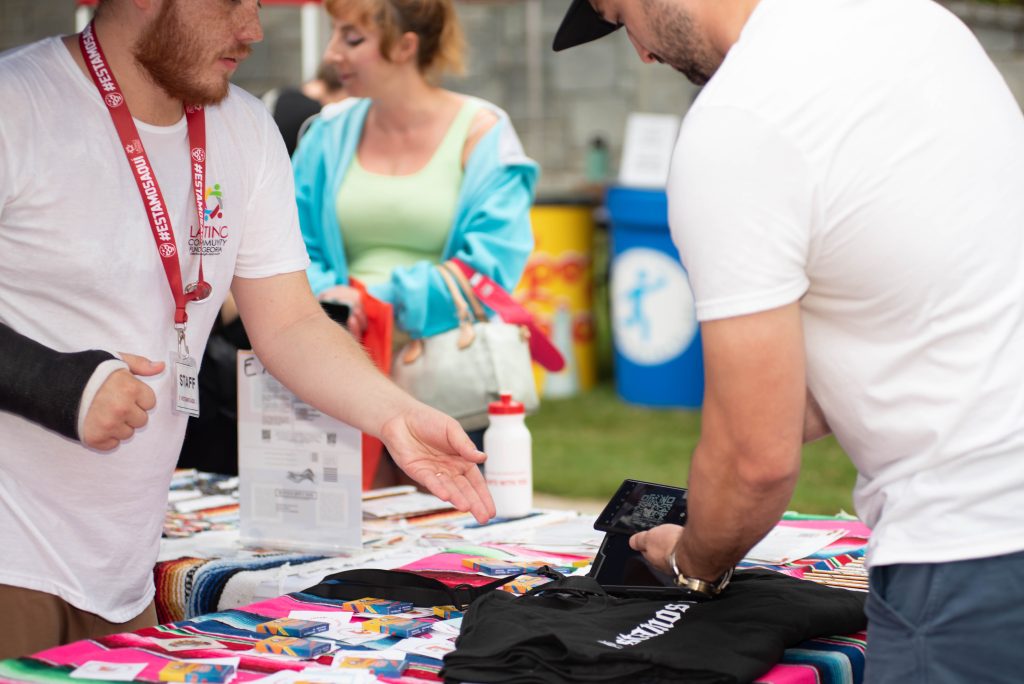
The 2023 Survey of Latino Voters in Georgia highlighted that top issues for Latinos align with national concerns: inflation, jobs and the economy, healthcare, crime and gun violence, and immigration47.
Taking Care of Each Other
The real power of the Latino community lies in our culture of care. In our community, there are many mutual aid efforts that often fly under the radar. These networks are a key part of our identity.
Community organizing among Latino groups in Georgia isn’t new. Often led by churches, neighborhood associations, volunteer groups, even soccer leagues, we regularly come together to help each other by collecting and disbursing funds to support families in need.
I started helping people by talking to neighbors when I lived in Buford Highway. We got together to support each other, understand the needs of our community. We became a team and started our own organization.
Aceli Zenil
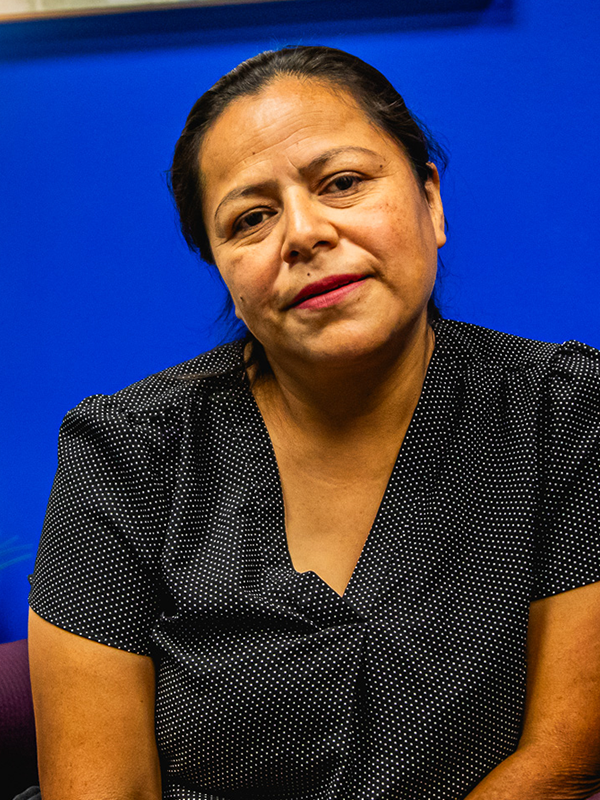
In community group chats, conversations about practical support, like food banks, immigration workshops, legal help, job opportunities, and self-care are prevalent. These chats offer vital emotional support, especially as culturally appropriate mental health services can be hard to come by. Many even organize yoga workshops and similar activities to help reduce stress.
The extent to which multilevel marketing businesses target Latinos, leveraging existing social networks and community leadership, highlights how deeply integrated these networks are into our everyday lives.
One of the main challenges in strengthening our political power is ensuring that local organizations and communities receive the respect and support they deserve. Too often, larger organizations overshadow grassroots efforts instead of supporting what is already happening on the ground.
Although there is a long way to go, our community's deepening roots and participation in Georgia are evident in the new wave of second- and third-generation Latinos stepping into political and decision-making roles. We’re optimistic about the opportunities in front of us, but can’t wait for them to come to us–we must take them.
I can see more Latinos involved in political activism and the nonprofit sector. Back then, I was one of the only ones; now, we are everywhere.
Louis Negron
